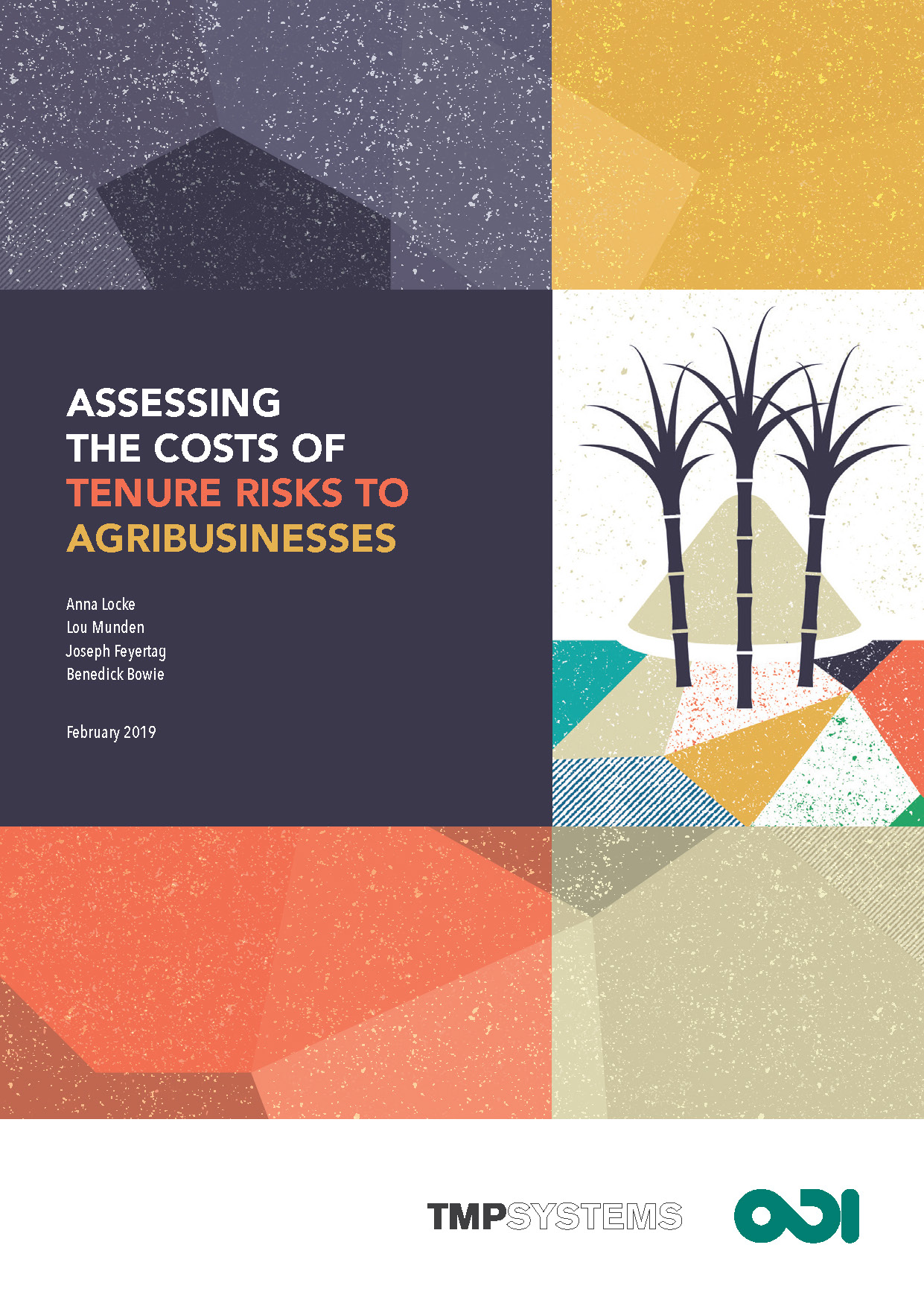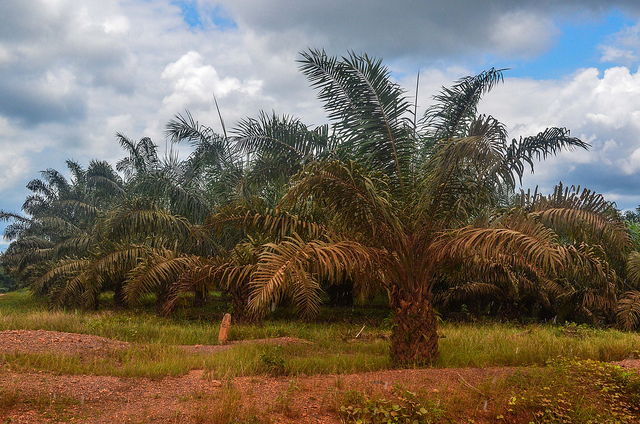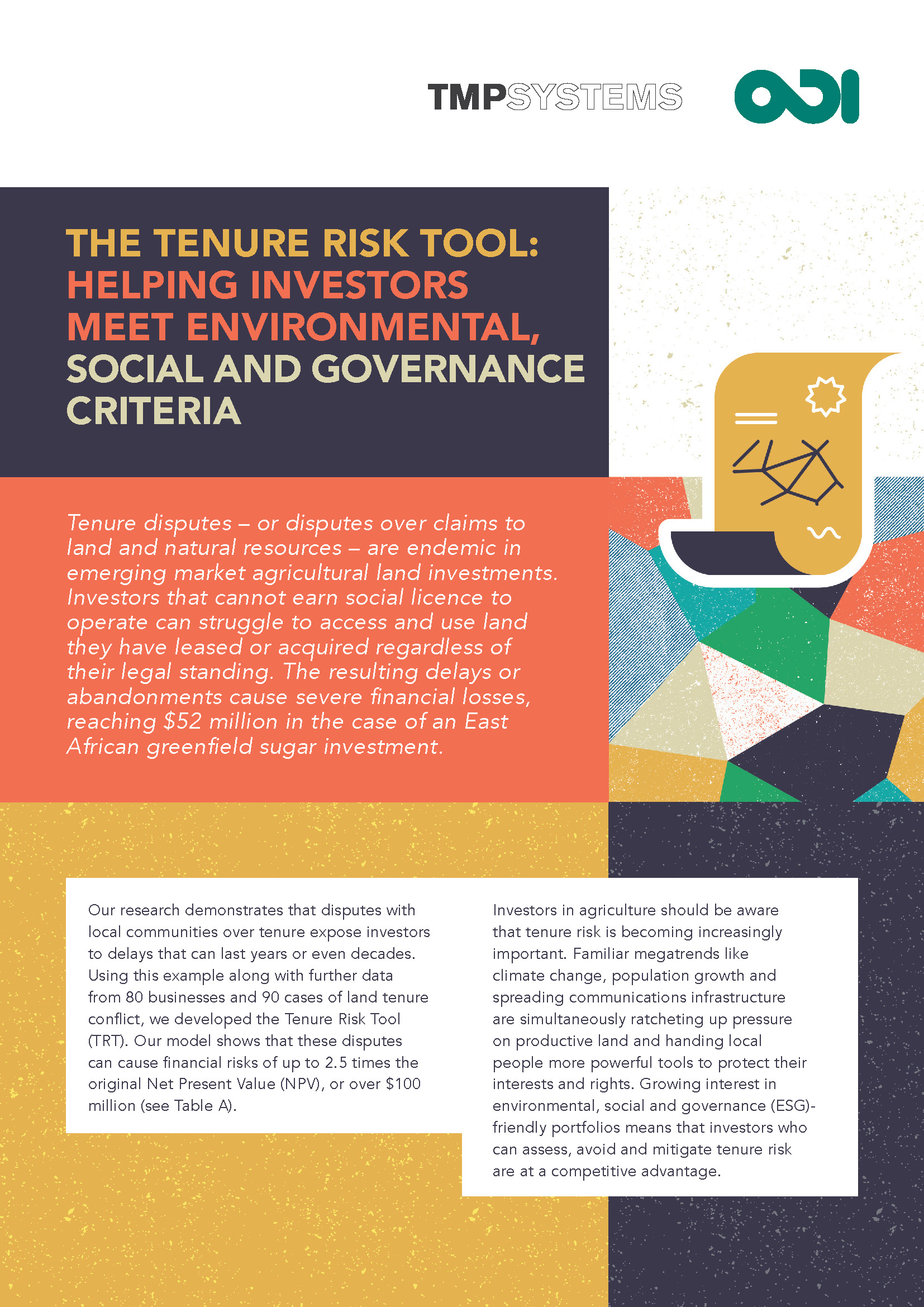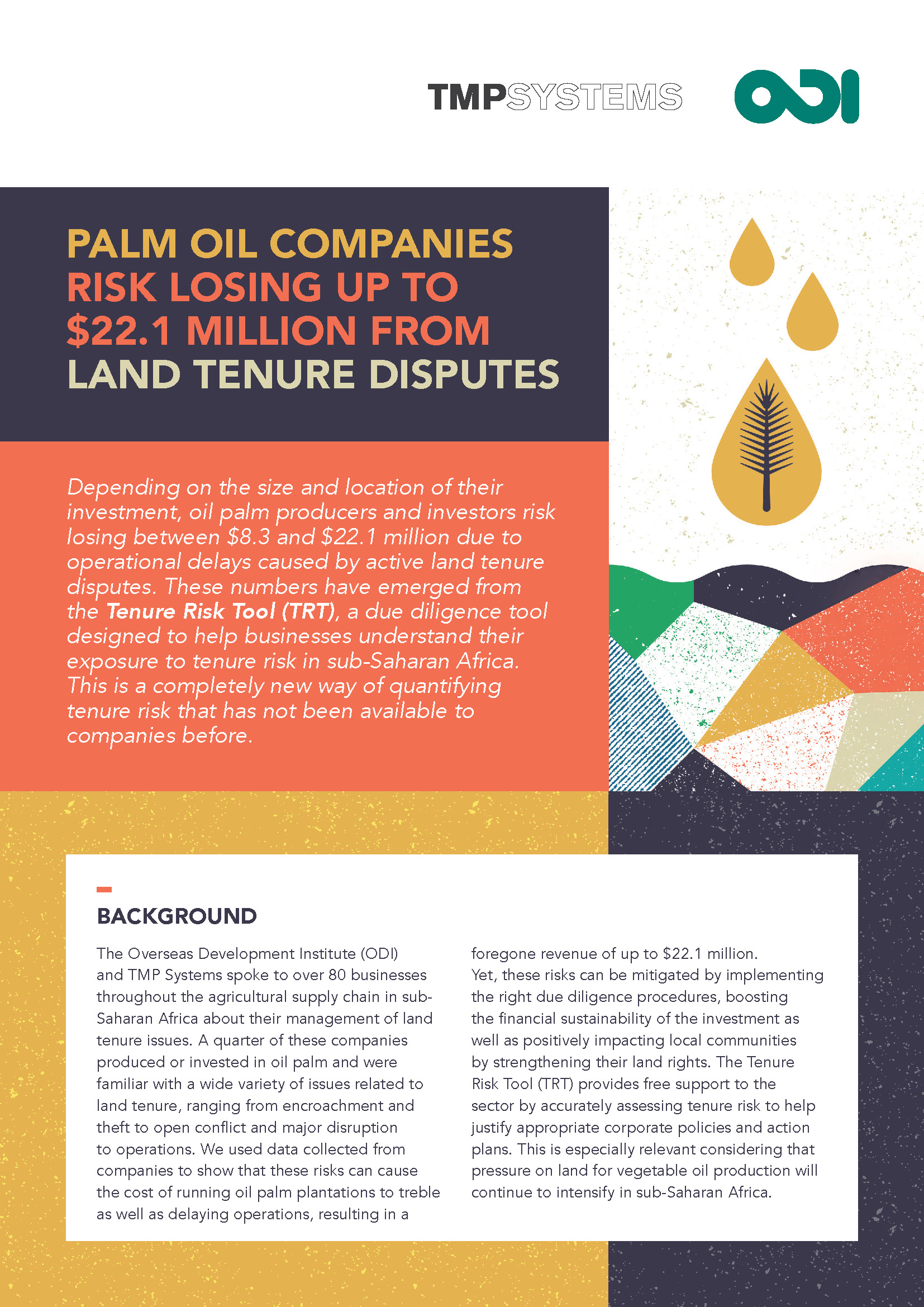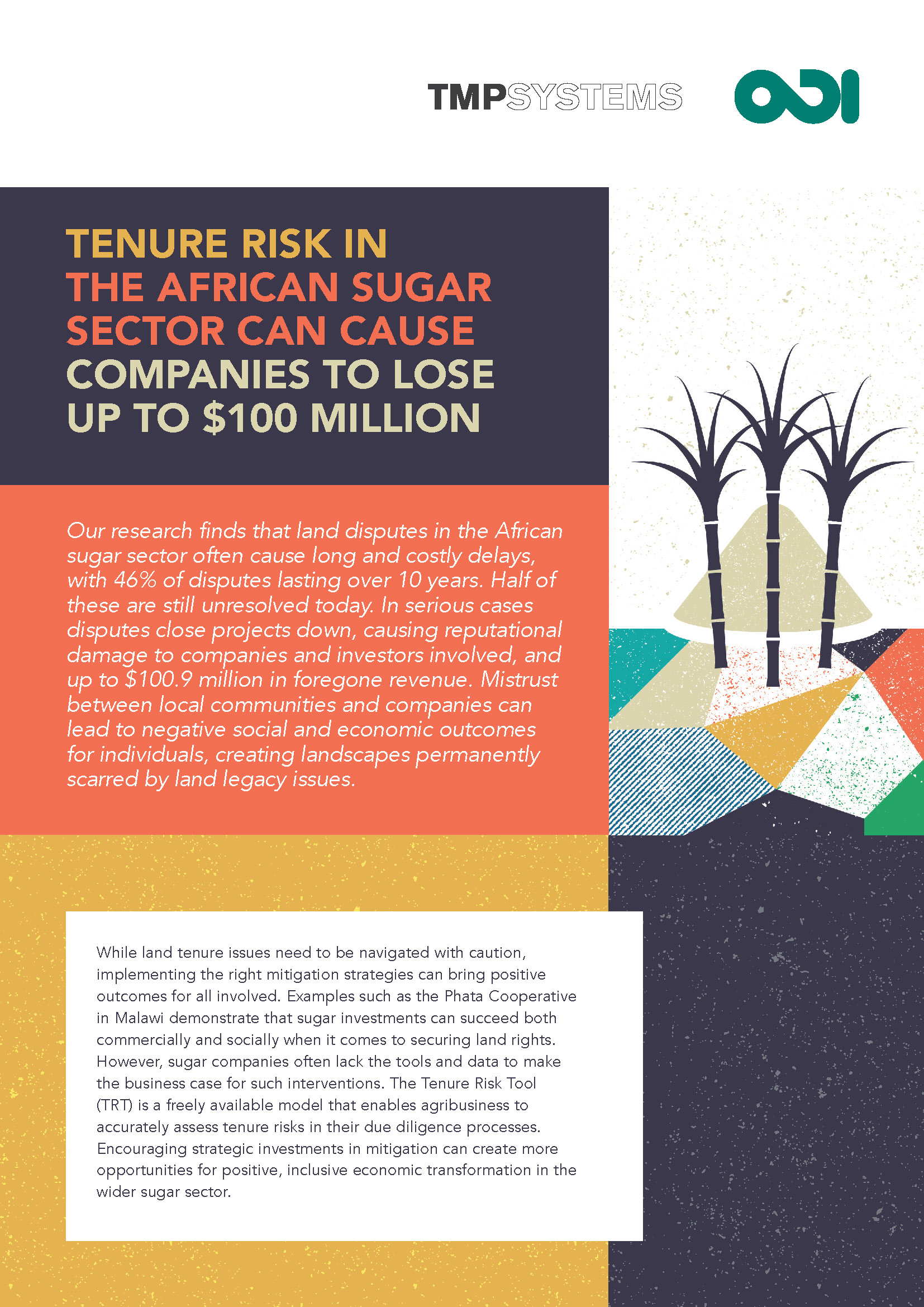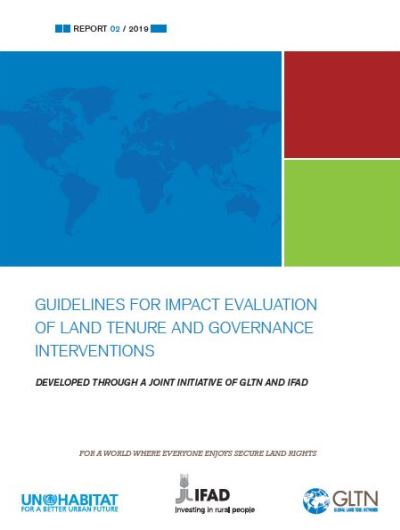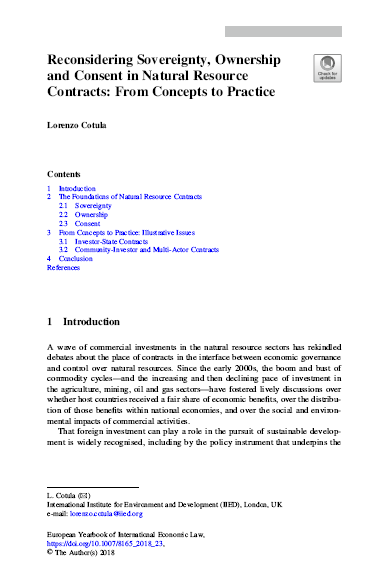Assessing the costs of tenure risks to agribusinesses
Tenure risk – or the risk of dispute between investors and local people over land or natural resource claims – is endemic in emerging markets. There are hundreds of recorded incidents of tenure disputes creating delays, violence, project cancellation and even bankruptcy at a corporate level.

